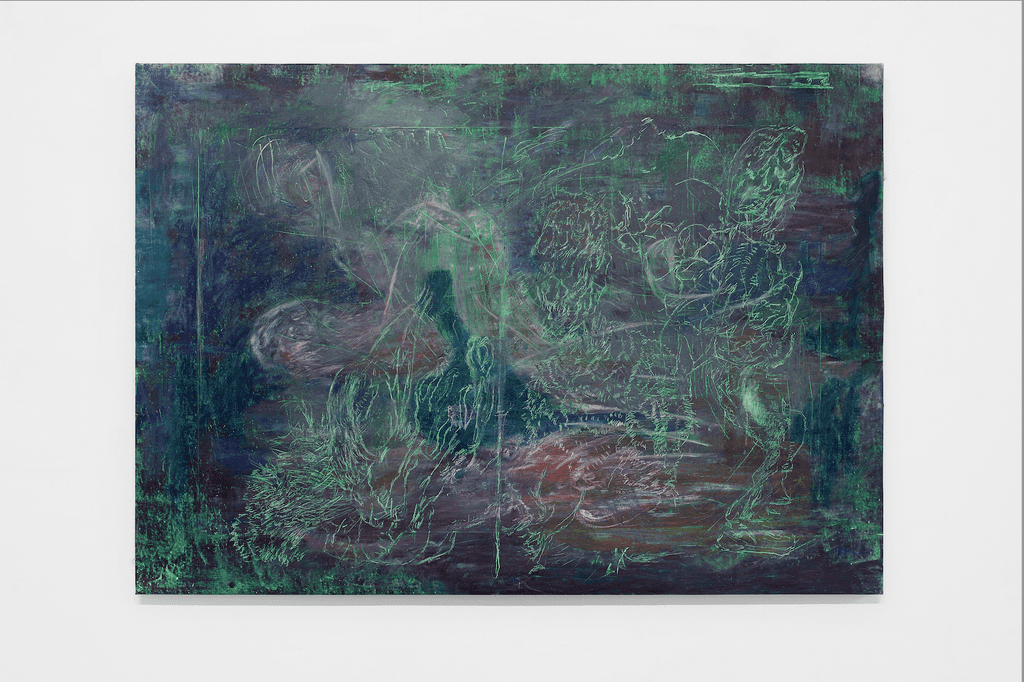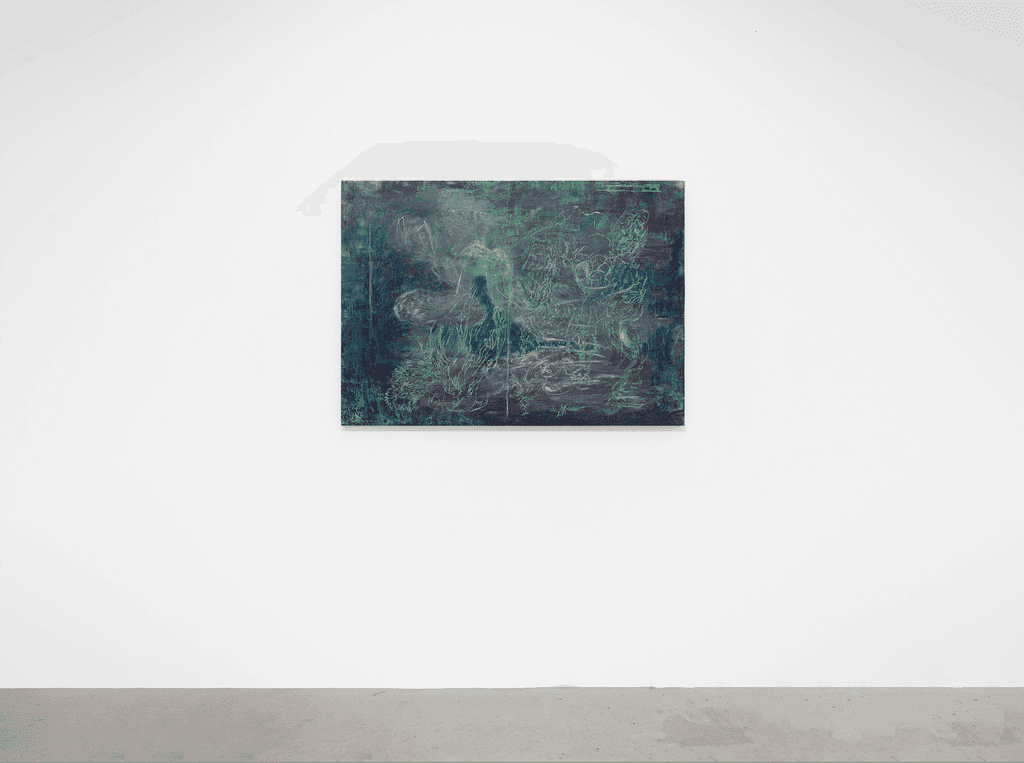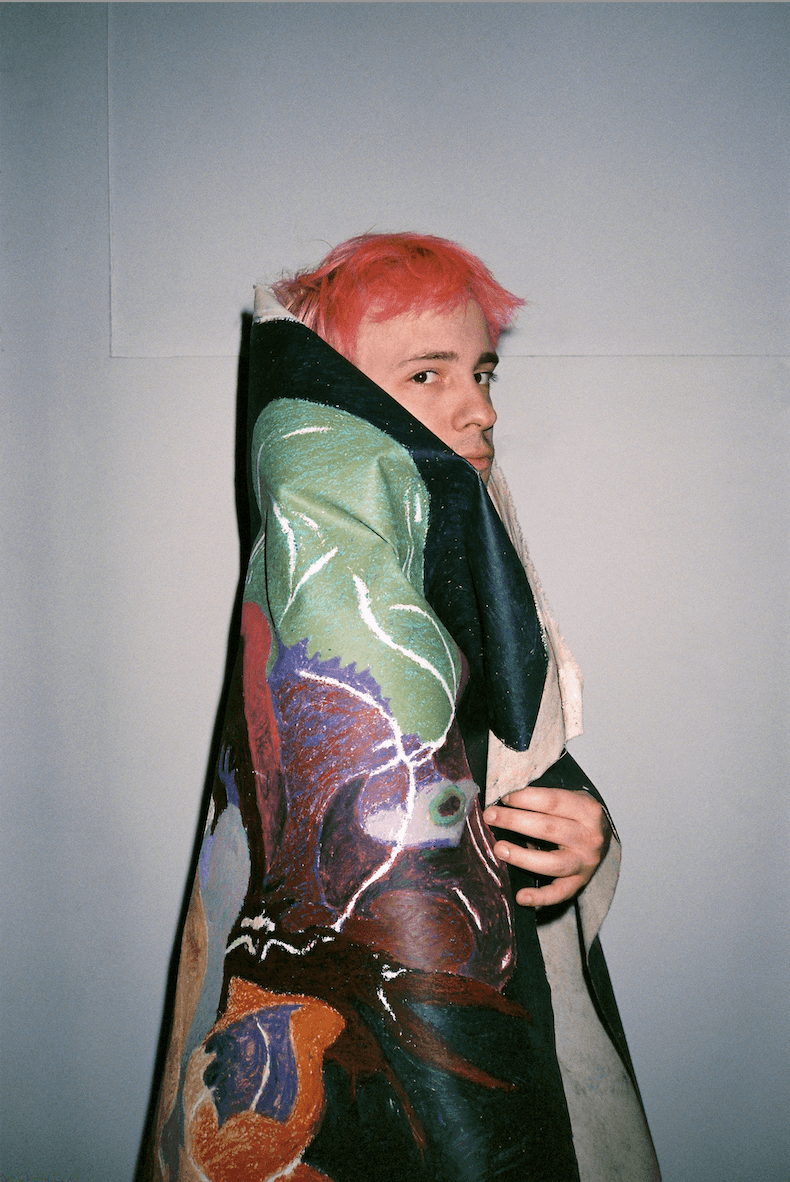This Time Will Be Different
33.25 x 47.25 in.
Oil Pastel on Canvas
About Gabor:
Gabor Bata is a Montreal-based artist. He is influenced by his experience with — and love of — film, animation, comics and design. He was awarded the Dale and Nick Tedeschi Studio Arts Fellowship in 2020, and has since exhibited his works throughout North America, including the 2022 edition of the Artch festival in Montreal. He completed his MFA in the Painting & Drawing program at Concordia in 2023, and is currently organizing his first solo exhibition post-academia with Le Livart.
Interview
et:
We're excited to have you here. To start off, we'd love to
get to know you! Tell us a little bit about yourself and what you do!
Hiya! The name's Gabor. I’m a Montreal-based artist, and my work is influenced by my experience and love of film, animation, comics and design. After 10 years of art school, I completed my MFA in painting & drawing at Concordia in 2023 and I even got my first solo exhibition at Le Livart the same year. I’ve previously exhibited with the ARTCH festival, Espace Maurice and received grants like the ARTCH grant and the Dale and Nick Tedeschi Studio Arts Fellowship.
et:
How did you approach the theme of first encounters in your work? What initial ideas or experiences guided your creative process?
"First encounters" just generated and conveyed a lot of emotions already inherent in my work: the theme of confrontation, that moment of potential eruption, embarrassment, joy, hope and horror. I've always been interested in those experiences, and more specifically, the awkward blend of all of those conflicting feelings. I explore that in aggressive figurative drawings of cartoonish, mutating characters jumping and stomping all over each other, or more abstract emotional landscapes that I like to think speaks to the interior lives of the characters I draw.
et:
Do you think digital technologies have changed the art world? If so, in what ways?
I can only speak to my work and my experience posting it online versus seeing it in person: ya just don’t get to experience the full level of gunkiness of the oil pastels or paint on my work when you look at them on instagram! Properly capturing the gunk for online is a big stressor for me. Can’t lose that gunk!
et:
If you could collaborate with any fictional character, who would it be and why?
Scooby Doo.




